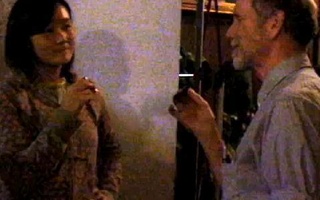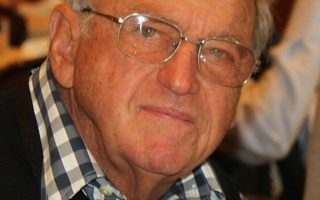Researchers from Harvard’s Wyss Institute for Biologically Inspired Engineering have recently created a prototype test for the Ebola virus that has the potential to save doctors and patients time and money.
The test, developed by Professor James J. Collins and others at the Wyss Institute, can test for the virus in 30 minutes, with each test costing less than one dollar to produce. In comparison, the tool currently used to test for Ebola in human subjects takes multiple hours to determine results and costs up to $200.
The test works by dropping molecules found in human blood or saliva onto pieces of paper containing freeze-dried enzymes called “switches.” These enzymes turn yellow when in the presence of the Ebola virus, a color change clearly visible to the naked eye. The freeze-dried technology allows the test to be stored and distributed without the use of expensive refrigeration.
Keith I. Pardee, a research scientist at the Wyss Institute and the leader of Collins’ research team, said that researchers are working to make the paper test available for widespread use in hospitals and clinics within the next 12 months.
“These are still early days for the technology,” Pardee said. “It works well in the lab and has very high specificity. However, sensitivity needs to be increased to make it practical for use in the field.”
While the test yields very few false positives or negatives, its sensitivity needs to be increased in order to detect Ebola even if very few viral molecules are present within the blood or saliva.
This new technology could be used to detect a wide array of diseases, in addition to Ebola, potentially taking diagnostic testing out of the laboratory and into the field.
Read more in University News
Engineering Research Partnerships To Launch in Jan.Recommended Articles
-
 New 'Lab at Harvard' Opens
New 'Lab at Harvard' Opens -
Author Speaks Of “Nature’s Blueprint”How can we learn from nature to get water without wells, materials without mining, or cooling without AC? Over 150 graduate students, faculty members, and Cambridge residents packed into a crowded Loeb Auditorium at the Graduate School of Design to hear author Janine M. Benyus address those very questions.
-
Wyss Launches CompetitionThe Wyss Institute for Biologically Inspired Engineering will host its first undergraduate science competition this year, encouraging students to combine biology and nanotechnology to solve global challenges.
-
Wyss Institute Aims to Transform Drug TestingWith the aid of pharmaceutical companies and multiple federal agencies, researches at the Wyss Institute have undertaken research that could revolutionize the drug testing process.
-
Wyss Puts Cells on ChipsThanks to a new partnership between the Wyss Institute for Biologically Inspired Engineering at Harvard and Sony Digital Audio Disc Corporation, scientists will soon be able to simulate human organs outside of the body using live cells—a technique that could revolutionize drug testing.
-
 Largest Donor to Harvard Doubles Gift to Wyss Institute
Largest Donor to Harvard Doubles Gift to Wyss Institute













